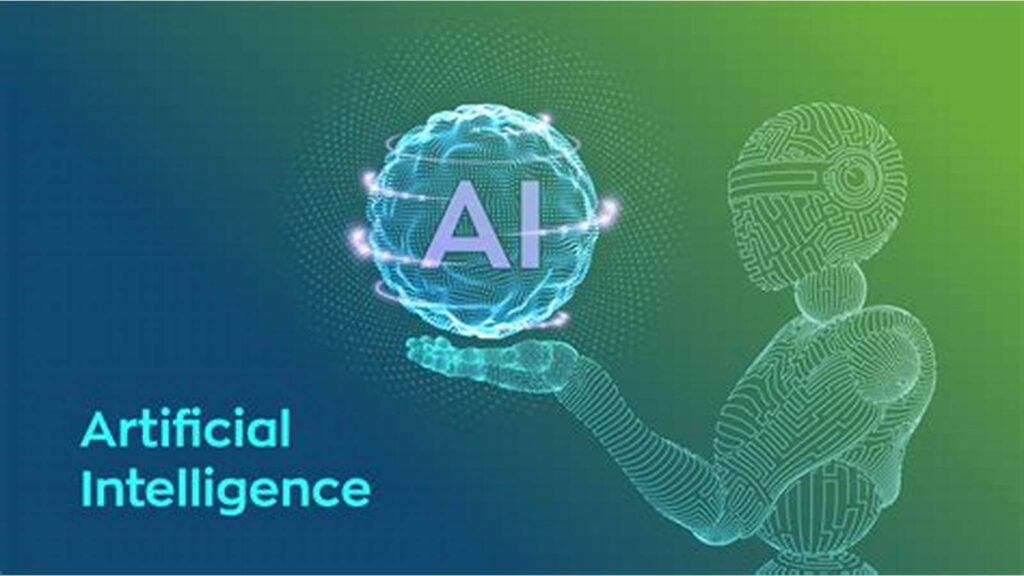How Artificial Intelligence (AI) is Making Work Faster, Easier, and Smarter
Artificial Intelligence (AI) is no longer just a concept from science fiction—it is now a reality that is transforming the way we work. From automating routine tasks to providing deep insights from data, AI is helping businesses and employees become more efficient, productive, and innovative.

In this article, we will explore how AI is making work faster, easier, and smarter across various industries.
1. Automating Repetitive Tasks
One of the biggest advantages of AI is its ability to handle repetitive and time-consuming tasks. In many workplaces, employees spend hours on tasks like data entry, scheduling meetings, and processing documents. AI-powered tools can now automate these activities, allowing employees to focus on more important and creative aspects of their jobs.
For example, chatbots and virtual assistants can respond to customer queries instantly, reducing the workload for customer service teams. Similarly, AI-driven software can process invoices and manage inventory in businesses, saving valuable time and reducing human errors.
2. Enhancing Decision-Making with Data Insights
AI is excellent at analyzing vast amounts of data and identifying patterns that humans might miss. This capability is helping businesses make smarter decisions based on real-time insights.
For instance, in the healthcare industry, AI can analyze patient records and predict diseases, helping doctors provide better treatments. In finance, AI-powered tools can detect fraudulent transactions and suggest investment opportunities based on market trends. Companies that leverage AI for data-driven decision-making gain a competitive edge and reduce risks.
3. Improving Workplace Communication and Collaboration
AI is revolutionizing workplace communication by making it more efficient and seamless. AI-powered transcription services can convert spoken words into written text instantly, making it easier to record meeting notes. Email and chat applications now use AI to summarize messages, suggest replies, and even translate conversations in real-time.
Moreover, AI-driven project management tools help teams collaborate better by assigning tasks, tracking progress, and identifying potential roadblocks. This ensures that projects are completed on time and with fewer misunderstandings.
4. Enhancing Customer Experience
Businesses are using AI to offer better customer service and personalized experiences. AI chatbots provide 24/7 support, answering frequently asked questions and guiding customers through processes without the need for human intervention.
In e-commerce, AI recommends products based on a customer’s browsing history, making online shopping more personalized and convenient. Banks and financial institutions use AI to offer customized financial advice to clients, improving customer satisfaction and engagement.
5. Boosting Employee Productivity and Job Satisfaction
AI is not just about automation—it is also helping employees work smarter. AI-powered tools assist professionals in writing reports, generating creative ideas, and even coding. Instead of replacing jobs, AI is allowing workers to focus on higher-value tasks that require creativity and critical thinking.
For example, in marketing, AI-powered tools can generate social media content and analyze campaign performance, allowing marketers to develop better strategies. In education, AI-driven tutoring programs help teachers provide personalized learning experiences to students.
6. Enabling Remote Work and Flexibility
The rise of AI-powered tools has made remote work easier and more efficient. Video conferencing platforms now use AI to improve video and audio quality, while virtual collaboration tools help teams stay connected, even when working from different locations.
AI-driven performance tracking systems allow employers to monitor productivity without micromanaging employees. This creates a healthier work environment where employees can manage their time effectively while maintaining a good work-life balance.
7. Enhancing Security and Reducing Risks
AI plays a crucial role in cybersecurity by identifying and preventing threats before they cause damage. AI-powered security systems monitor network activity, detect suspicious behavior, and respond to cyber threats in real time.
In workplaces that deal with hazardous environments, AI-powered robots can perform dangerous tasks, reducing risks for human workers. For example, AI-driven drones inspect construction sites and oil rigs, ensuring safety and efficiency.
8. The Future of AI in the Workplace
As AI continues to evolve, its impact on the workplace will only grow. Future advancements may include AI-driven personal assistants that can understand emotions and provide mental health support, as well as AI-powered hiring tools that eliminate biases in recruitment.
However, with these advancements, there are also challenges to consider. Businesses must ensure that AI is used ethically and responsibly. Employees must also adapt to the changing work environment by learning new skills and embracing AI as a tool for growth.
Conclusion
Artificial Intelligence is transforming the way we work by making tasks faster, easier, and smarter. From automating repetitive tasks to enhancing decision-making and improving workplace collaboration, AI is becoming an essential part of the modern workforce. While challenges remain, the benefits of AI far outweigh the drawbacks, making it a powerful force for innovation and progress. By embracing AI, businesses and employees can unlock new opportunities and thrive in the future of work.
Comments
- Advertisement -

